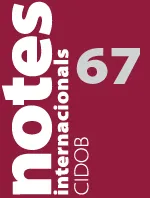Algeria, the Sahel, and the Current Mali Crisis

Notes internacionals CIDOB, núm. 67
- Algeria believes Mali to be the “weak link of the chain” and uncommitted to the fight against Al-Qaeda in the Islamic Maghreb (AQIM). Algiers questions the trustworthiness of the Malian government vis-à-vis the widening AQIM networks and the Malians’ ability to share and protect intelligence needed for regional cooperation.
- Algeria’s complex relationship in the Sahel in general, and with Mali in particular, is also rooted in the role that Algiers is thought to have played in supporting rebellions of Tuaregs, both in Mali and Niger, at the time in apparent competition with Muammar Kaddafi.
- Northern Mali has become the shelter of AQIM katibas, and more recently the fertile ground for other newly created non-Algerian groups (MUJWA and Ansar al-Sharia). The only remaining interlocutor that Algiers could consider is Ansar eddine, yet a radical islamist group that never hided its preference for Sharia law enforcement.
- The Tuareg secessionist movement recently retrieved its voice in the mediation talks through an agreement signed with Ansar eddine on 21 December 2012 under the auspices of Algiers who considered it to be a milestone on the road to the political settlement of Mali crisis.
- Algeria showed muscle and determination to action in the recent hostages crisis, an unanticipated crisis that underlies the key role and implication of its policies and strategies in the region.